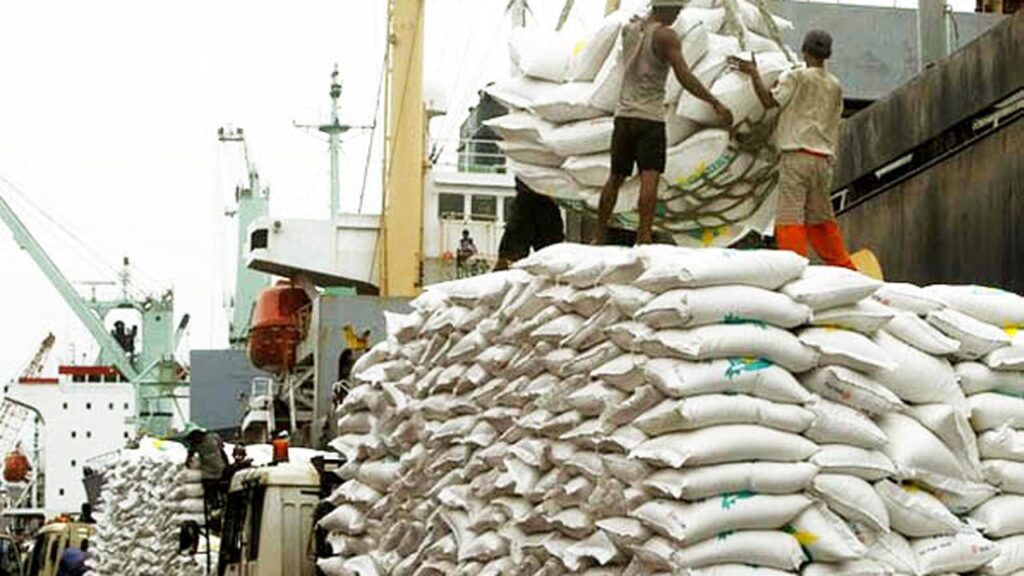In light of Nigeria’s heavy dependence on rice imports, the nation is poised to import an estimated 2.1 million metric tons of rice in 2024, potentially solidifying its position as the world’s foremost rice buyer. This revelation stems from the latest Rice Outlook report released by the Economic Research Service of the U.S. Department of Agriculture (USDA).
The report provides a comprehensive view of the global rice trade, forecasting a total of approximately 52.85 million tons (milled basis) by the year 2024. Noteworthy inclusions are projections for increased rice exports from Brazil and South Korea, while Burkina Faso, Indonesia, and Nigeria are expected to augment their rice import volumes.
Delving into the specifics of the global rice trade outlook for 2024, the report states, “Export forecasts for 2024 are raised for Brazil and South Korea, while import forecasts are raised for Burkina Faso, Indonesia, and Nigeria, with Indonesia’s import forecast raised 600,000 tons to 2.0 million tons.”
Of particular significance, the report underscores an anticipated decline in rice production in Nigeria, accompanied by a similar trend in seven other countries. Factors contributing to the weaker crop projections in Nigeria include considerations such as diet diversification and aging populations. The report identifies Japan, South Korea, Costa Rica, Ecuador, Mali, Turkey, and Uzbekistan as additional nations expecting reduced rice production in the 2023/24 period.
Despite the projected decrease in global rice production to 517.8 million tons (milled basis), representing a slight drop of 340,000 tons from the previous month’s forecast, it remains a substantial increase of 4.4 million tons compared to the previous year. Within this global context, Nigeria’s expected rice production is estimated to be around 5.23 million tons, underscoring the nation’s role in the intricate dynamics of the global rice market.
This report signals a critical juncture for Nigeria, emphasizing the need for strategic planning and policies to address the challenges associated with a significant reliance on rice imports. The nation’s agricultural landscape and policies must be carefully navigated to ensure food security and sustainability amid the evolving dynamics of the global rice trade.










More Stories
Dangote refinery reduces petrol price by N15
South African authorities approve Canal+ acquisition of Multichoice
National Sports Festival: Traders, transporters, hospitality businesses boom in Ogun